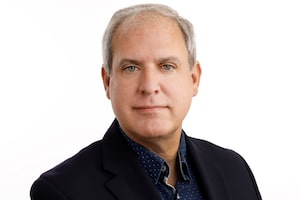
The 13 provincial and territorial health care ministers will meet with federal Health Minister Jean-Yves Duclos on Nov. 7.Adrian Wyld/The Canadian Press
The meeting of health ministers that opens Monday night in Vancouver is of crucial importance to the country, but the participants themselves don’t seem to realize it.
The health care system is in crisis, but Canada’s political leaders, provincial and federal, have so far failed to deal with their citizens’ number one issue.
That could change on Tuesday if provincial health ministers show leadership and force the federal government to follow. To do that, 13 provincial and territorial health ministers have to set a national health care agenda.
So far, provincial premiers have instead focused on finger-pointing, demanding an impossibly large $28-billion a year in additional health care spending, and launched a series of ads arguing that a lack of federal cash is to blame for the shortage of doctors. But the premiers’ focus on money has actually made it easier, politically, for Prime Minister Justin Trudeau’s government to deflect and delay.
It has added up to a miserable failure of Canada’s political leaders, federal and provincial, that should be unthinkable right now.
The COVID-19 pandemic underlined the vulnerability of the health care system in most Canadian provinces, and the fragility of the system was also cited by premiers as the reason that repeated restrictions had to be imposed on lockdown-weary citizens – Quebec Premier François Legault cited that as the reason for a second curfew in January.
Yet Canada’s provinces have not embarked on a massive health care rebuild. They squabble with Ottawa over money. The public is caught in an endless federal-provincial political feedback loop. That feeds cynicism and the feeling that government can’t or won’t deal with the population’s top priority.
In the last federal election, Mr. Trudeau promised to pump an additional $25-billion into the health care system over five years; his government hasn’t yet lived up to the promise.
The feds don’t just want to simply transfer money for health care. They want to say they are paying for certain things, like more family doctors, or more psychiatrists and mental-health supports, or for long-term care for seniors, or home care. They want political credit.
That annoys some provincial governments, but it also engages the notion that the feds are trying to set conditions on how the provinces manage health care.
And that’s where we are: in a morass of craven federal-provincial inertia.
The provinces, who manage separate health care networks, are all facing some similar issues. “The problems are ubiquitous. They are national,” said NDP MP Don Davies, the party’s health critic. He argued that Ottawa has to lead.
But they haven’t. But if the provinces get smart, they could certainly muster enough political pressure to force Mr. Trudeau to put money on the table.
When the 13 provincial and territorial health care ministers meet federal Health Minister Jean-Yves Duclos for dinner on Monday night, they should tell him they will outline a national health care agenda. They should deliver it to him on paper in work sessions on Tuesday.
There is consensus that there is a shortage of doctors and nurses, so they can outline what has to be done, such as expanding university programs. The provinces can set plans for four or five areas, such as long-term care or addictions, that need remedial attention in all provinces. There is already a fairly widespread consensus about those areas. They don’t need to accept federal conditions.
This Ontario nurse knew our health system was broken. That still didn’t prepare her as a patient
Ottawa will want to hear there is some way to track what the provinces will do in those areas, but that can be accomplished by reporting some health care data. That might actually provide some accountability to the public.
That won’t bridge all the problems. The federal government wants to divide up their transfers in separate pots of money for specific things, such as mental health, while the provinces want it all to come in the Canada Health Transfer. The gap between the amount of money the provinces want and what Mr. Trudeau’s federal government has promised is massive, but in the end the sum will be closer to Ottawa’s number.
But if provincial ministers hand Mr. Duclos a national health care agenda, the ball will be in Ottawa’s court. The funding question will require a timely answer. There would be a national health care agenda to (hopefully) fill the void of recurring political failure. Those 13 provincial and territorial ministers can’t let Mr. Duclos leave Vancouver without it.
 Campbell Clark
Campbell Clark